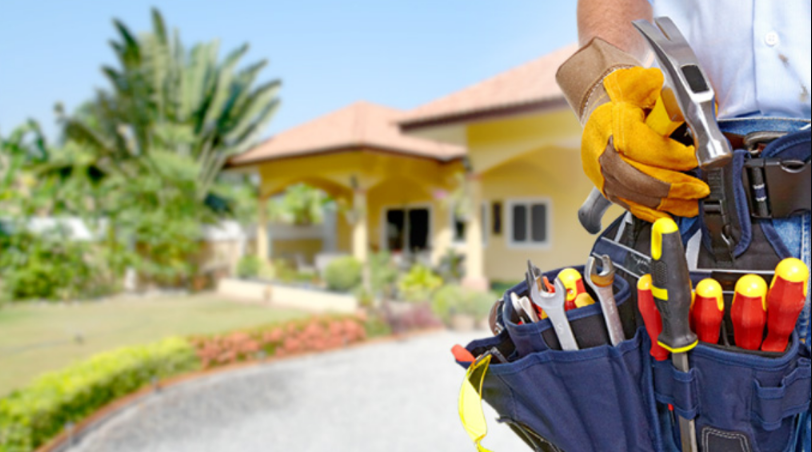Key Takeaways
- Understand the different types of home maintenance tasks and their costs
- Learn strategies for setting aside an adequate budget for regular maintenance
- Discover tools and resources that can help you manage home maintenance budgets
- Gain insights into cost-effective practices for maintaining your home
- Consider professional services for major maintenance tasks
Introduction to Home Maintenance Budgeting
Keeping a home in good condition requires regular maintenance. While many homeowners need to pay more attention to budgeting for these tasks, unplanned expenses like attic cleaning costs can strain finances. Preparing a comprehensive budget ensures your home remains in tip-top shape without breaking the bank. Understanding home maintenance’s various aspects and associated costs can help homeowners allocate their resources efficiently. A well-maintained home looks better and functions more effectively, thus increasing its longevity and value over time. Moreover, budgeting ahead of time alleviates the stress and sudden financial burden that often accompany unexpected home repairs.
Types of Home Maintenance Tasks
Home maintenance encompasses many tasks, from minor fixes to major overhauls. Knowing what tasks should be performed regularly can help you better prepare and budget. Common tasks include:
- Seasonal deep cleaning: This involves thoroughly cleaning areas like carpets, windows, and siding that might not receive frequent, regular attention. Seasonal cleaning can prevent build-up and damage over time.
- HVAC system check-ups: Regular inspections and maintenance of your heating, ventilation, and air conditioning systems ensure they run efficiently and last longer.
- Roof inspections: Checking for damaged shingles, leaks, and other potential issues can prevent more severe damage that requires costly repairs.
- Pest control: Regular inspections and treatments can prevent pest infestations that can damage property and health.
- Exterior painting and repair work: Maintaining the house’s exterior improves curb appeal and prevents structural damage caused by weather elements.
- Plumbing maintenance: Fixing leaks, inspecting pipes, and maintaining drainage systems can prevent water damage and expensive repairs.
- Electrical system inspections: Regular inspections can identify potential hazards, ensuring the safety of the home’s inhabitants.
Estimating Maintenance Costs
Estimating the cost of these varied tasks is crucial for accurate budgeting. Understanding the actual costs of homeownership is essential. Several factors affect how much you need to budget, including the age of your home, local labor rates, and the specific materials used in your house. Researching average costs in your region can give you a ballpark figure. For example, labor charges can significantly differ from one area to another. The types of materials used in your home, such as high-quality roofing shingles or advanced HVAC systems, can also affect maintenance costs. Gathering quotes from multiple service providers can offer a clearer picture of expected expenses.
Creating a Monthly Budget
Setting aside a monthly budget is the best way to ensure you’re prepared for maintenance tasks. A common rule of thumb is to allocate 1-4% of your home’s value annually to maintenance. For instance, if your home is worth $300,000, setting aside $3,000 to $12,000 yearly or $250 to $1000 monthly can offer peace of mind. By consistently saving a portion of your monthly budget for maintenance, you create a financial cushion that lessens the impact of more extensive unexpected repairs. This proactive approach ensures that maintenance tasks are not completed on time, which could result in more expensive repairs later on.
Budgeting for Unexpected Repairs
No matter how well you plan, unexpected repairs will always arise. A separate emergency fund for home repairs can help you handle these situations without stress. To avoid depletion, keep this fund separate from your regular maintenance budget. A general guideline is to set aside an amount equal to at least three to six months’ worth of home maintenance costs. Emergency funds are not just for significant home repairs; they can also cover minor, unforeseen issues that might arise, such as a leaking pipe or a broken window. The goal is to have a financial buffer to address these problems swiftly without disrupting overall financial stability.
Using Tools and Resources
Several tools and resources can assist you in managing your home maintenance budget. Apps like HomeZada and BrightNest offer organized ways to track maintenance tasks and expenses, providing reminders for upcoming tasks and keeping detailed records of past work. Furthermore, seeking expert financial advice can provide better strategies tailored to your needs. These tools help streamline the budgeting process, making it more manageable and less time-consuming. Utilizing these resources can also help you identify areas where you can save money. For example, tracking the frequency and cost of certain repairs may highlight preventative measures that can reduce expenses over time.
Cost-Effective Practices
Implementing cost-effective practices can significantly reduce your home maintenance expenses. Regularly cleaning gutters, changing HVAC filters, and inspecting your home for early signs of issues can prevent minor problems from becoming more extensive and expensive. Small investments in DIY tools and knowledge can also save money in the long term. Taking a proactive approach to minor fixes can prevent the need for more extensive and costly repairs. For example, addressing a minor roof leak early on can prevent water damage to the interior of your home, which would be more expensive to repair.
When to Call Professionals
While many home maintenance tasks can be handled personally, specific tasks require a professional touch. For instance, major electrical repairs, significant plumbing issues, and large-scale roof repairs should always be left to experts. Not only do they have the necessary skills, but they also ensure the job is done safely and correctly. Hiring professionals for complex tasks can prevent further damage and potential safety hazards. Attempting to perform such tasks without proper knowledge and tools can lead to more significant issues, turning minor problems into major expenses.

